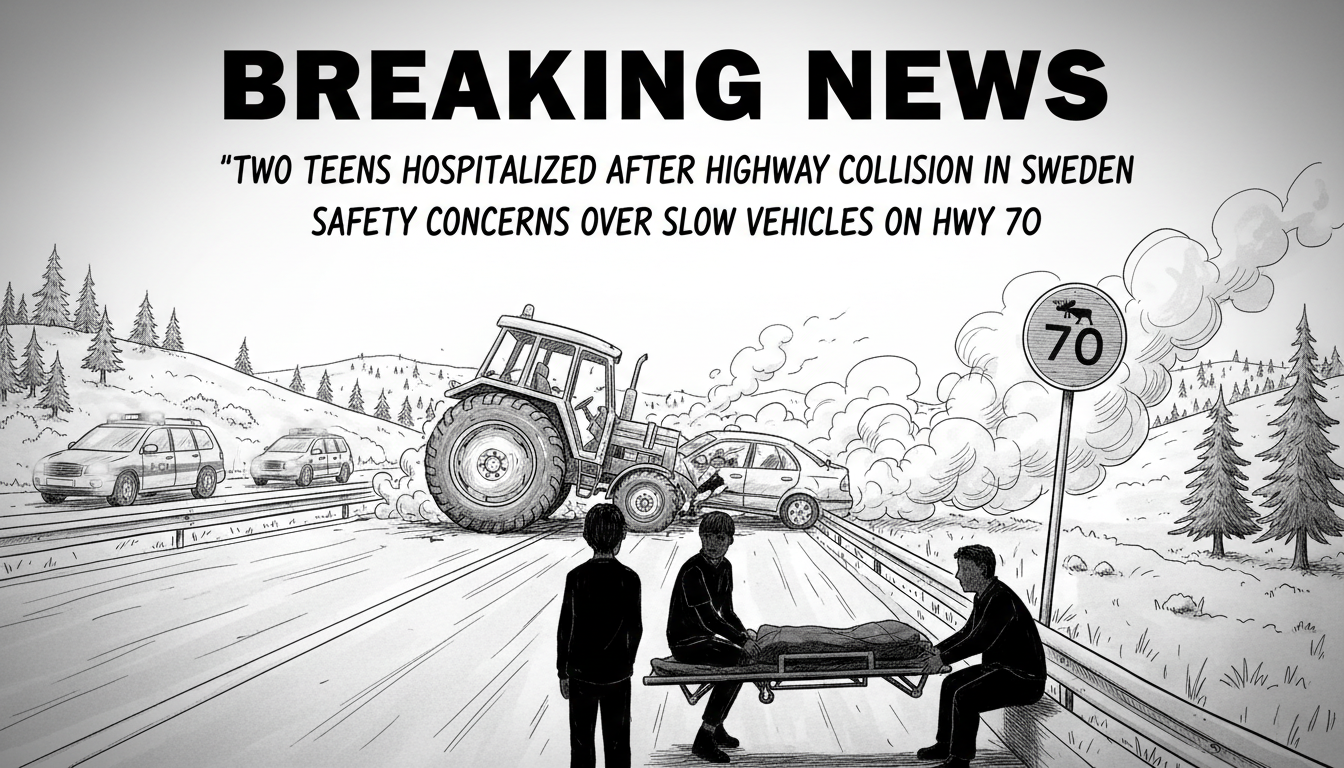Two teenagers received emergency hospital transport following a serious traffic accident in central Sweden. The crash occurred on Highway 70 near Enköping when a passenger vehicle struck an A-tractor from behind. Police confirmed the incident in an official statement but have not released details about the teenagers' medical conditions. Officers are conducting a full investigation into the collision circumstances.
This accident highlights ongoing road safety concerns involving A-tractors in Sweden. These modified vehicles, limited to 30 km/h, create significant speed differentials on highways designed for faster traffic. The safety implications of mixing slow agricultural vehicles with high-speed cars have generated public debate across Swedish communities.
Sweden's traffic safety record generally ranks among Europe's best, but incidents involving A-tractors present unique challenges. These vehicles are popular among teenagers as young as 15 can operate them with a moped license. The accessibility creates situations where inexperienced drivers navigate major roads alongside commercial trucks and passenger vehicles.
Local residents have previously raised concerns about Highway 70 safety. The route connects several municipalities and experiences heavy commuter traffic. Previous incidents involving slow-moving vehicles have prompted discussions about potential restrictions or improved signage.
The investigation will likely focus on several key factors. Police will examine road conditions, vehicle speeds, and visibility at the time of collision. They will also determine whether either driver violated traffic regulations. Swedish accident investigations typically take several weeks to complete, with findings potentially influencing future road safety policies.
For international readers, Sweden's A-tractor system represents a unique aspect of Nordic transportation culture. The practice allows rural youth mobility while creating complex traffic dynamics. Similar systems exist in other Nordic countries but with varying regulations and safety records.
Medical professionals note that rear-end collisions often cause whiplash injuries and back trauma. The teenagers' prognosis depends on collision speed and safety equipment effectiveness. Swedish hospitals maintain high standards for trauma care, with specialized facilities available in nearby Uppsala.
This incident serves as a reminder that even countries with excellent road safety records face persistent challenges. The balance between accessibility for young drivers and overall traffic safety remains difficult to achieve. Future policy decisions may need to address the compatibility of slow-moving vehicles with modern highway systems.

